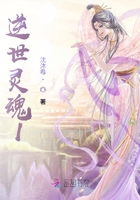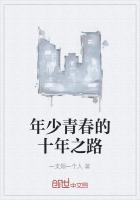Between two and three o'clock people ran up: again there was a jingling of bells: they were bringing the bride! The church was full, the candelabra were lighted, the choir were singing from music books as old Tsybukin had wished it. The glare of the lights and the bright coloured dresses dazzled Lipa; she felt as though the singers with their loud voices were hitting her on the head with a hammer. Her boots and the stays, which she had put on for the first time in her life, pinched her, and her face looked as though she had only just come to herself after fainting; she gazed about without understanding. Anisim, in his black coat with a red cord instead of a tie, stared at the same spot lost in thought, and when the singers shouted loudly he hurriedly crossed himself. He felt touched and disposed to weep. This church was familiar to him from earliest childhood; at one time his dead mother used to bring him here to take the sacrament; at one time he used to sing in the choir; every ikon he remembered so well, every corner. Here he was being married, he had to take a wife for the sake of doing the proper thing, but he was not thinking of that now, he had forgotten his wedding completely. Tears dimmed his eyes so that he could not see the ikons, he felt heavy at heart; he prayed and besought God that the misfortunes that threatened him, that were ready to burst upon him to- morrow, if not to-day, might somehow pass him by as storm-clouds in time of drought pass over the village without yielding one drop of rain. And so many sins were heaped up in the past, so many sins, all getting away from them or setting them right was so beyond hope that it seemed incongruous even to ask forgiveness. But he did ask forgiveness, and even gave a loud sob, but no one took any notice of that, since they all supposed he had had a drop too much.
There was a sound of a fretful childish wail: "Take me away, mamma darling!""Quiet there!" cried the priest.
When they returned from the church people ran after them; there were crowds, too, round the shop, round the gates, and in the yard under the windows. The peasant women came in to sing songs of congratulation to them. The young couple had scarcely crossed the threshold when the singers, who were already standing in the outer room with their musicbooks, broke into a loud chant at the top of their voices; a band ordered expressly from the town began playing. Foaming Don wine was brought in tall wine-glasses, and Elizarov, a carpenter who did jobs by contract, a tall, gaunt old man with eyebrows so bushy that his eyes could scarcely be seen, said, addressing the happy pair:
"Anisim and you, my child, love one another, live in God's way, little children, and the Heavenly Mother will not abandon you."He leaned his face on the old father's shoulder and gave a sob. "Grigory Petrovitch, let us weep, let us weep with joy!" he said in athin voice, and then at once burst out laughing in a loud bass guffaw. "Ho- ho-ho! This is a fine daughter-in-law for you too! Everything is in its place in her; all runs smoothly, no creaking, the mechanism works well, lots of screws in it."He was a native of the Yegoryevsky district, but had worked in the factories in Ukleevo and the neighborhood from his youth up, and had made it his home. He had been a familiar figure for years as old and gaunt and lanky as now, and for years he had been nicknamed "Crutch." Perhaps because he had been for forty years occupied in repairing the factory machinery he judged everybody and everything by its soundness or its need of repair. And before sitting down to the table he tried several chairs to see whether they were solid, and he touched the smoked fish also.
After the Don wine, they all sat down to the table. The visitors talked, moving their chairs. The singers were singing in the outer room. The band was playing, and at the same time the peasant women in the yard were singing their songs all in chorus -- and there was an awful, wild medley of sounds which made one giddy.
Crutch turned round in his chair and prodded his neighbours with his elbows, prevented people from talking, and laughed and cried alternately.
"Little children, little children, little children," he muttered rapidly. "Aksinya my dear, Varvara darling, we will live all in peace and harmony, my dear little axes. . . ."He drank little and was now only drunk from one glass of English bitters. The revolting bitters, made from nobody knows what, intoxicated everyone who drank it as though it had stunned them. Their tongues beganto falter.
The local clergy, the clerks from the factories with their wives, the tradesmen and tavern-keepers from the other villages were present. The clerk and the elder of the rural district who had served together for fourteen years, and who had during all that time never signed a single document for anybody nor let a single person out of the local court without deceiving or insulting him, were sitting now side by side, both fat and well-fed, and it seemed as though they were so saturated in injustice and falsehood that even the skin of their faces was somehow peculiar, fraudulent. The clerk's wife, a thin woman with a squint, had brought all her children with her, and like a bird of prey looked aslant at the plates and snatched anything she could get hold of to put in her own or her children's pockets.
Lipa sat as though turned to stone, still with the same expression as in church. Anisim had not said a single word to her since he had made her acquaintance, so that he did not yet know the sound of her voice; and now, sitting beside her, he remained mute and went on drinking bitters, and when he got drunk he began talking to the aunt who was sitting opposite:















